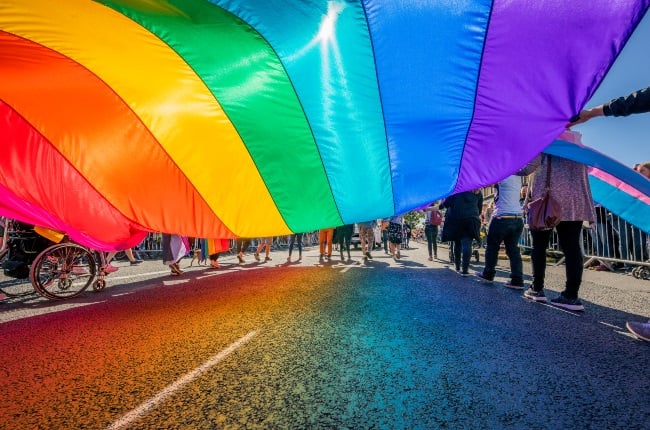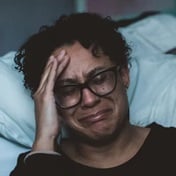
- The South African LGBTQ+ community is mourning the untimely death of Andile 'Lulu' Ntuthela, who was murdered in Uitenhage over the weekend.
- In the wake of the devastating news of this hate crime, the Gay & Lesbian Alliance of South Africa (GLASA) has called for communities to unite for harsher sentencing, the prioritisation of the LGBTQIA+ hate crimes, and for stricter legislations to protect the community, particularly in townships and rural areas.
- Similarly in 2018, a first-of-its-kind inquiry in Australia was made to investigate both the scale of hate crimes against the LGBTQ+ community and inadequate police responses.
Lessons learnt from a 2018 NSW parliamentary inquiry into hate crimes against Australia’s LGBTQ+ community could change the way police and communities respond to complaints, and acknowledge the continued impact of past injustices.
The inquiry was the first of its kind in Australia to investigate both the scale of hate crimes against the LGBTQ+ community and inadequate police responses. It was held because a growing body of research and community-driven activism pointed out the toll violence had taken, and continues to take, on LGBTQ Australians.
READ MORE: India has officially ended a 150-year-old law that criminalised gay sex
As well as the handling of these past cases, the inquiry investigated matters including the impact of the now defunct “gay panic” defence. This provided an alleged “homosexual advance” was a partial defence to murder; South Australia is now the only state to maintain this defence.
This broad remit could lead to far-reaching and significant recommendations that acknowledge the problematic past policing of LGBTQ communities. A consideration of responses to past violence against LGBTQ people will provide a basic level of acknowledgement of past harms. It will also clarify the legacies of those experiences in relationships with police today.
Experiences of violence
The NSW inquiry defined hate crimes as LGBTQ-related murder, physical and verbal violence, or institutional violence.
Contemporary surveys of Australian LGBTQ people show unacceptably high rates of violent victimisation, with reports at alarming levels for transgender people.
READ MORE: "I was outed as transgender and it was one of the most painful experiences of my life"
The largest Australian study found 72% of LGBTIQ people had experienced verbal abuse, 41% threats of physical violence and 23% physical assault.
For transgender participants, 92% of trans women and 55% of trans men had experienced verbal abuse; 46% of trans women and 36% of trans men had experienced physical assault.
Historic hate crimes
The most well-known hate crime is the case of 27-year-old Scott Johnson, an American PhD student whose body was found naked at the bottom of North Head in Manly, Sydney, in 1988.
After 30 years of waiting and three coronial inquests, Johnson’s death, originally deemed a suicide, was finally recognised as a gay hate crime. The coroner found that Johnson was either pushed off the cliff or died trying to escape attackers.
NSW police offered a one million dollar reward for clues leading to the resolution of this cold case.
In 2018, the report In Pursuit of Truth and Justice, by health organisation ACON, drew together decades of research and community advocacy in investigating 88 historical hate crimes in NSW.
Like Johnson’s case, many of these crimes had been written off as accidental deaths or suicides. Months later, NSW police released the final report of Strike Force Parrabell, the internal investigation of police handling of these cases. Controversially, this reduced the number of deaths deemed hate crimes (it used different criteria).
Due to a history of problematic policing, the most effective means of obtaining a fuller picture of the past scale of hate crimes against the LGBTQ community would be to call a Royal Commission, which would have the powers to conduct a full and independent investigation.
READ MORE: I celebrated Pride Month by coming out to my parents and this was their reaction
Policing homosexual offences
The police approach to LGBTQ hate crimes is rooted in the historic criminalisation of male homosexual behaviours.
In the 1950s, as public awareness of homosexuality increased, NSW police intensified their policing of male homosexuality, especially at public meeting places and beats.
Then Police Commissioner Colin Delaney described homosexuality as:
"Australia’s greatest menace" and a "cancer in the community".
Delaney ramped up the use of the vice squad to target homosexuals, with tactics that were often alleged to include entrapment, falsifications of statements, blackmail and threats of violence.
It was not until 1984 that sex between males in NSW was decriminalised.
Decriminalisation
But decriminalisation did not immediately shift perceptions of all police officers or members of the public. Many people continued to be victims of homophobic and transphobic violence, and reporting offences brought stigma and vilification.
The establishment of the community reporting mechanism the Lesbian and Gay Anti-Violence Project in the 1990s was one way that advocacy groups tried to tackle distrust of police and the ongoing threat of violence. This project provided a safe place for gay and lesbian people to report offences and have them recorded without fear of encountering homophobia.
Since decriminalisation, NSW police have worked to re-build relationships with LGBTQ communities through outreach programs, community visibility and participation, and the creation of the Gay and Lesbian Liaison Officer program.
Trust in police
Yet, continued distrust of police in LGBTQ communities shows the long-standing effects of past practices and injustices, and their ongoing impact.
National research shows LGBTQ people are reluctant to report offences to police. Earlier negative experiences often influence perceptions of how officers might treat their complaint.
Most worryingly, Victorian research shows young LGBTQ people are the least likely to report offences to police. More than half would not report a hate crime, fearing a homophobic or transphobic response. More said they would report to a LGBTQ Liaison Officer.
Achieving justice
The Australian [and global] community needs to work towards social and cultural change that will reduce violence against LGBTQ people. Policing is an important part of this change.
The road ahead for achieving justice involves looking back to recognise and redress past wrongs and looking forward to create systems of safe reporting that work for marginalised communities.
One type of response in improving contemporary policing is unlikely to work for all, given the diversity of LGBTIQ communities. A variety of responses might focus on improving access to formal systems, including strengthening and better resourcing LGBTI police liaison programs to develop trust between police and LGBTQ communities. It would also be helpful to implement third-party reporting mechanisms through which victims could report crimes in safe spaces, such as community organisations, instead of to police.
However, many people may prefer mechanisms for redress that do not involve the formal criminal justice system, such as restorative and transformative justice. These approaches are a process of victim and community restitution that involves perpetrators taking responsibility for their actions, recognising the harms done by violence, and changing their attitudes.
Finally, we need to aim for active interventions, including educational initiatives aimed at both the police and the broader public, that reduce the occurrence of homophobic and transphobic violence.
Ultimately, transforming the broader conditions that underpin and propel this violence will be the most significant way to achieve justice.
Authors: Andy Kaladelfos, Bianca Fileborn, Lisa Featherstone, Shirleene Robinson, Yorick Smaal
This article is republished from The Conversation under a Creative Commons license. Read the original article.
Follow us on social media: Facebook, Twitter, Instagram
Sign up to W24's newsletters so you don't miss out on any of our stories and giveaways.




 Publications
Publications
 Partners
Partners












